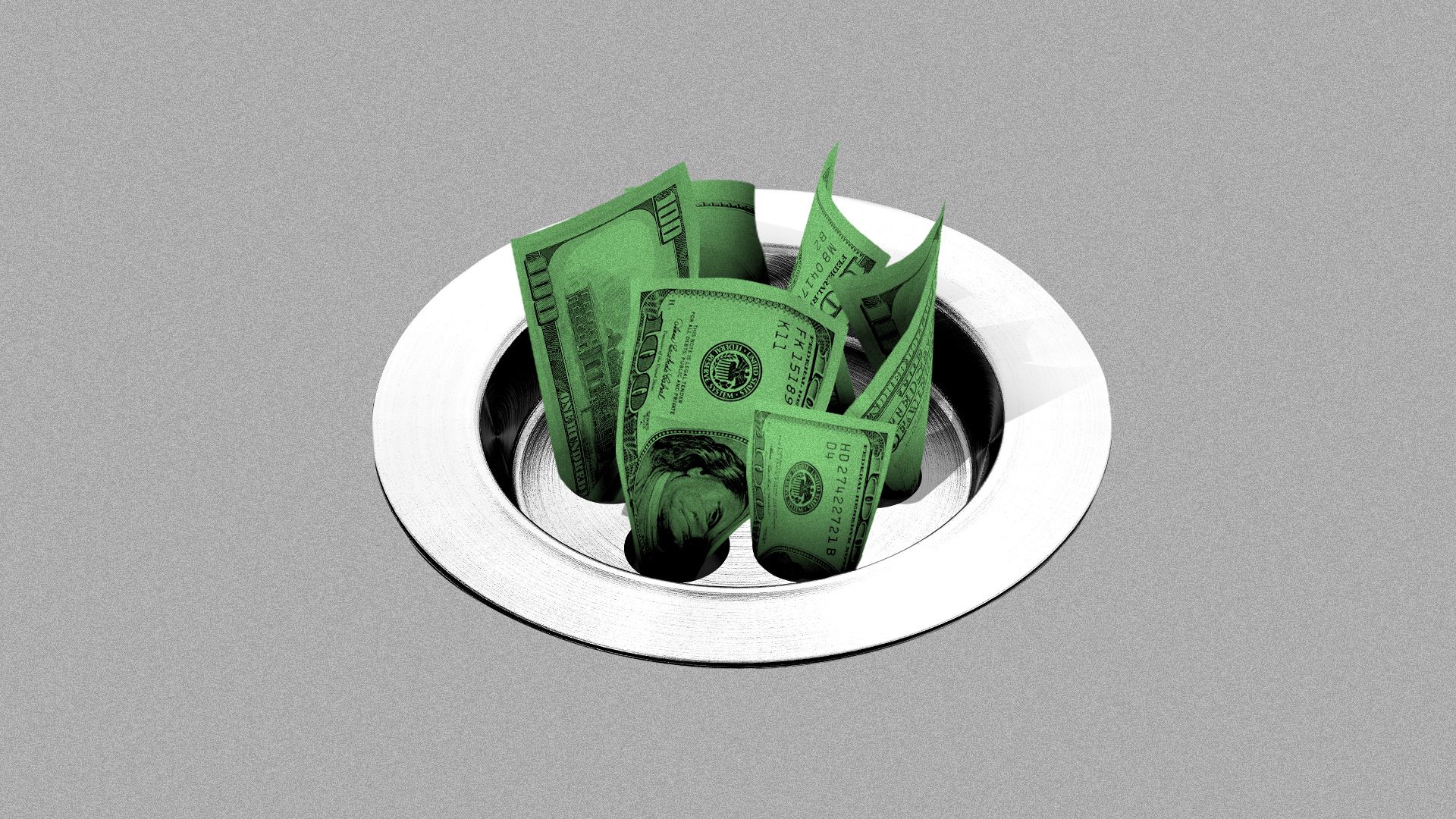The health care swamp has not been drained
Add Axios as your preferred source to
see more of our stories on Google.

Illustration: Aïda Amer/Axios
The health care industry has dramatically increased its federal lobbying under President Trump, and it has paid off for those companies.
Why it matters: The influence economy has only gotten bigger over the past three years, despite Trump's calls to "drain the swamp." Lobbying expenses have soared, and in the process, the health care industry has largely gotten what it wanted in Washington.
Axios analyzed the federal lobbying reports of 60 health care companies and trade organizations from 2014 through 2019 — the last three years of the Obama administration, and the first three years of Trump's.
- These 60 entities are among the largest trade groups and companies based on revenue.
What we found: The 60 groups in this analysis spent a collective $309 million on federal lobbying in 2019,
- Lobbying among these 60 groups soared 10% in 2017. Spending then grew more slowly in 2018, before jumping another 9% this past year.
- The pharmaceutical industry — and specifically its main trade group, PhRMA — have spent the most money by far on lobbying under Trump, as both he and Democrats have called out the industry's pricing tactics.
- STAT has a more granular look at drug companies' lobbying.
How it works: The lobbying apparatus isn't just about fending off proposals that threaten health care's lucrative system.
- Lobbyists also have helped score new industry victories under Trump, like the tax law that immediately boosted profits for many health care companies, or the year-end package that repealed a handful of ACA taxes.
Between the lines: The $309 million these groups spent lobbying last year is, for them, a bargain.
- There's a lot these figures don't cover, including dues to trade associations and state-level lobbying.
- But take Pfizer, the single biggest spender among health care companies. Even if you tripled its $11 million total to account for those other expenses, you'd end up at a mere 0.06% of Pfizer's $52 billion of expected 2019 revenue — or roughly four months of U.S. Lipitor sales.
These figures also don't reflect campaign contributions — another very important source of leverage, especially for drugmakers.
Go deeper: See the entire analysis
